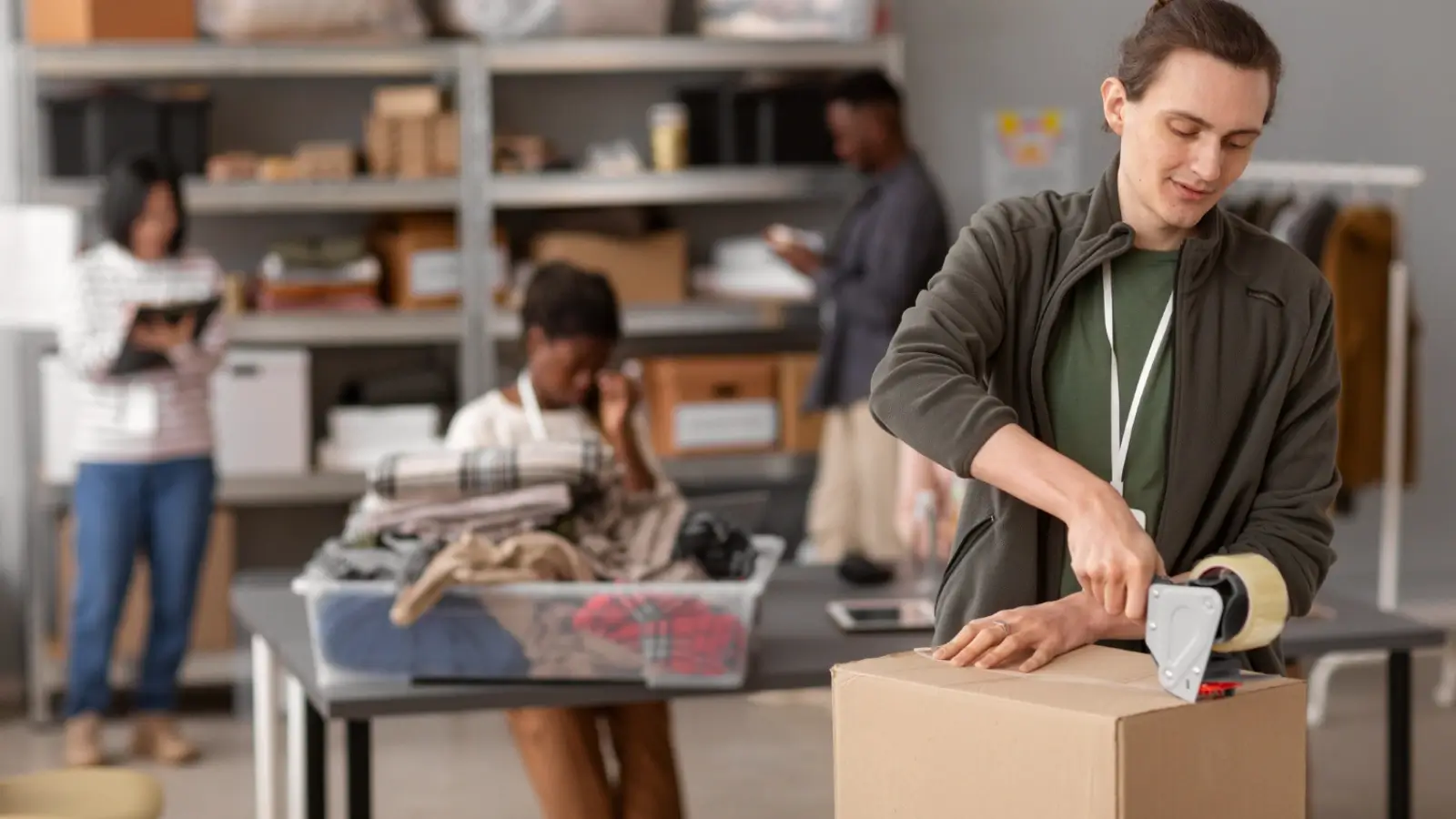


Across the UK, businesses are adapting to a new era of online retail. Customer expectations have risen sharply, courier pricing has become more complex and competition within ecommerce has increased year after year. In 2026, businesses must refine every stage of their operations to stay competitive and one of the most impactful areas to improve is packaging.
Packaging is often seen as a routine task, but it influences everything from operational costs to customer satisfaction. By adopting a smarter approach, UK retailers can reduce waste, lower delivery costs, streamline workflows and create a stronger overall brand experience.
This article explores how packaging strategies are evolving, and why businesses investing in the right materials and processes are seeing measurable improvements across their entire operations.
Years ago, packaging was simply a way to protect goods during transit. Today, it is a fundamental part of business strategy. Customers judge a brand by the quality of the parcel they receive, and courier partners judge businesses by how efficiently they pack and label items.
Smarter packaging helps improve:
delivery speed
cost efficiency
brand image
customer loyalty
staff productivity
shipping accuracy
return rates
Businesses that treat packaging as a strategic function, rather than a basic requirement, are able to build a significant competitive advantage.
One of the biggest benefits of improving packaging systems is cost reduction. Excess packaging materials, oversized boxes and unnecessarily heavy cartons all increase the cost of delivery. These extra costs are often overlooked because they are spread across hundreds of daily parcels.
Many UK businesses are now switching to lighter, stronger materials such as modern mailing bags. Lightweight UK ecommerce mailing bags help retailers stay within Royal Mail Small Parcel weight limits, which can significantly reduce postage spend over the course of a year.
Choosing the right packaging for each product category ensures that goods are protected without adding unnecessary bulk or weight.
Grey mailing bags have become a staple for many online businesses. They provide strength and privacy while remaining lightweight and easy to store. For clothing brands, bookshops, home retailers and subscription boxes, these bags have become the most practical choice.
A growing number of businesses now rely on premium grey mailing bags for UK retailers because they offer excellent durability without raising postage costs. The consistent film strength helps reduce tears, ensuring items arrive safely even through multiple handling points.
Strong self-seal strips also eliminate the need for additional tape, saving time and reducing clutter at packing stations.
Customer expectations have changed dramatically. A neat, well-sealed parcel builds trust and encourages repeat purchases, while a damaged or oversized one can create doubt and disappointment.
Better packaging improves customer experience in several ways:
Protection during transit is essential. Strong mailing bags and appropriately sized boxes help reduce the number of damaged parcels.
A clean, uniform appearance helps reinforce brand identity.
Thoughtful packaging shows customers that the business values their order, which increases satisfaction and loyalty.
Better packaging reduces the chances of items arriving damaged, which helps keep return costs under control.
In a competitive market, customer experience is one of the most important ways retailers can differentiate themselves from the competition.
Packing is a daily task that can consume a significant amount of time. Small improvements in workflow can save hours each week, especially for businesses handling high-volume orders.
An efficient packing system includes:
clearly organised materials
a small number of standard bag and box sizes
defined packing steps
a tidy, well-lit workspace
strong materials that require minimal taping
reliable sealing methods
Many retailers find that by standardising materials, they are able to reduce confusion and speed up training for new staff. A more organised workspace also reduces packing mistakes and creates a smoother overall workflow.
Warehouse space is one of the most expensive overheads for ecommerce businesses. Unnecessary packaging sizes create clutter, reduce productivity and make it harder to manage inventory.
By choosing fewer packaging sizes, retailers can free up space and keep their stock area more organised. Lightweight packaging also takes up significantly less room than bulky cartons, allowing teams to store larger volumes without expanding their premises.
This also makes stock control easier managing a small number of packaging types, simplifies reordering and reduces the risk of running out of essential materials.
A dependable packaging supplier plays a crucial role in maintaining an efficient packing system. Delays in delivery or inconsistent product quality can disrupt operations and slow down fulfilment.
Many UK retailers prefer suppliers who offer:
consistent quality
quick delivery
clear size information
bulk pricing opportunities
UK-based stock
Suppliers like Mr Bags UK packaging supplies provide businesses with confidence that materials will arrive on time and match the required specifications. This is especially important during peak periods, when demand rises and every delay has a greater impact on operations.
As sustainability becomes increasingly important, businesses are moving towards materials that reduce environmental impact without compromising performance. Lightweight bags, recyclable polymers and efficient packing methods help reduce carbon emissions by lowering the overall packaging footprint.
Businesses that adopt sustainable packaging practices improve their public image, meet customer expectations and stay ahead of future regulations.
In 2026, packaging is a strategic priority for UK retailers. Smarter packaging systems help reduce costs, improve customer satisfaction, minimise waste and deliver higher operational efficiency. Whether it is choosing lighter materials, organising packing stations more effectively or working with reliable suppliers, every improvement contributes to a stronger, more resilient business.
Retailers that invest in better packaging today will be the ones who compete most effectively in the years ahead.